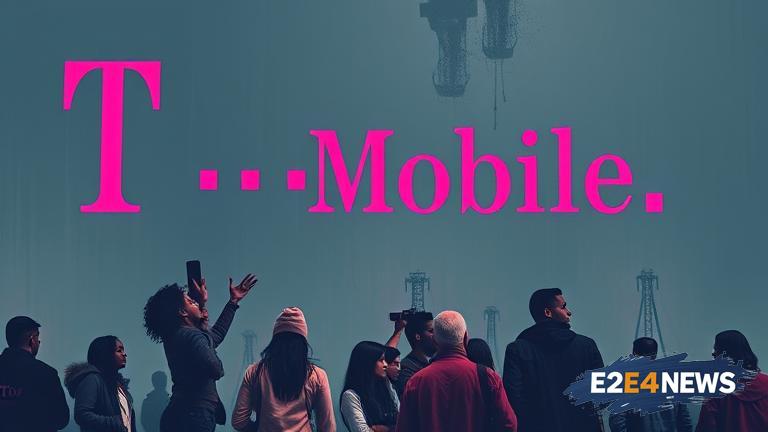In a recent development, T-Mobile, one of the largest telecommunications companies in the United States, has decided to discontinue its Diversity, Equity, and Inclusion (DEI) initiative. This move comes after the company faced intense pressure from the Trump administration and conservative groups, who have been vocal about their opposition to such programs. The DEI initiative was designed to promote diversity, equity, and inclusion within the company, and was seen as a key aspect of T-Mobile’s efforts to create a more inclusive and welcoming work environment. However, critics of the program argued that it was unnecessary and even divisive, and that it promoted a liberal agenda. The Trump administration has been a vocal critic of DEI programs, with some officials arguing that they are a form of ‘reverse discrimination’ and that they undermine the principles of meritocracy. T-Mobile’s decision to abandon its DEI program is seen as a significant victory for conservative groups, who have been pushing back against such initiatives in recent years. The company’s move is also likely to have implications for other businesses, who may be hesitant to implement similar programs in the face of political pressure. Despite the controversy surrounding DEI programs, many experts argue that they are essential for creating a more diverse and inclusive work environment, and that they can have a positive impact on business outcomes. T-Mobile’s decision to abandon its DEI program has been met with criticism from some quarters, with some arguing that it is a step backwards for the company and for the broader business community. The company’s move is also likely to have implications for its relationships with diverse stakeholders, including employees, customers, and suppliers. In recent years, there has been a growing trend towards greater diversity and inclusion in the workplace, with many companies recognizing the importance of creating a more inclusive and welcoming environment. However, this trend has also been met with resistance from some quarters, with some arguing that DEI programs are unnecessary or even counterproductive. T-Mobile’s decision to abandon its DEI program is a significant development in this debate, and is likely to have implications for the broader business community. The company’s move is also likely to be seen as a test case for other businesses, who may be considering implementing similar programs. As the debate over DEI programs continues to evolve, it is likely that we will see more companies facing pressure to abandon or modify their initiatives. In the meantime, T-Mobile’s decision to abandon its DEI program is a significant setback for those who argue that such programs are essential for creating a more diverse and inclusive work environment. The company’s move is also likely to have implications for its reputation and brand, with some customers and stakeholders potentially viewing the decision as a negative development. Overall, T-Mobile’s decision to abandon its DEI program is a complex and multifaceted issue, with implications for the company, the broader business community, and the ongoing debate over diversity and inclusion in the workplace.
